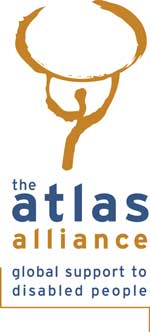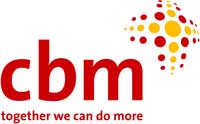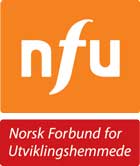Editorial
Inclusive education is not just about disability and placing children with disabilities in regular schools/classes. Inclusive education is a process of school and system- wide improvements (to policies, practices, attitudes, environments and resourcing) that enable all children to participate in a quality education in their local school.
If you are a regular reader of ‘Enabling Education Review’ and EENET’s website, you will already be familiar with these ideas. Nevertheless, while inclusive education is not solely concerned with disability, the inclusion of children with disabilities remains a vitally important aspect of inclusive education.
For many years there have been concerns that the global Education for All movement, and approaches like child-friendly schools, have not always adequately addressed the specific access and participation needs of learners with disabilities. Broad approaches to inclusive education have not always resulted in significant improvements for children with disabilities – even though they bring about noticeable results in terms of improving general education quality, teaching practices, attitudes, etc. Some barriers, unique to children with disabilities, cannot always be resolved through general improvements alone.1 Yet sometimes inclusive education programmes are reluctant to engage in overtly disability-specific interventions.
This is a dilemma for education programme implementers and policy-makers. If they take too broad an approach, they risk glossing over the details of individual disabled learners’ needs. If they take a disability-specific approach, they risk being criticised for not ‘seeing the bigger picture’ of inclusion and whole-school change.
However, programmes and policies don’t have to take an either/or approach. It is perfectly possible (indeed desirable) for an inclusive education programme or policy to take a ‘twin- track’ approach, through which it works on broad system and school-wide improvements at the same time as addressing the specific needs of individual learners, particularly those with disabilities. Addressing the specific needs of children with disabilities is also in line with child- centred pedagogy, which is a key approach to improving the overall quality of education.
The twin-track idea is certainly not new, but it sometimes gets forgotten. We therefore felt it was a good time to publish an edition of the newsletter that stimulates thinking about how disability needs and rights can be addressed within inclusive education, using the twin-track approach.
The timing couldn’t be better, as the Global Campaign for Education’s 2014 theme will be disability and inclusive education. The Campaign reaches a huge global audience of policy-makers and practitioners, and takes a rights-based approach to education. It will therefore be calling for inclusive education as a key ingredient for upholding the educational rights of all children, including those with disabilities. The Campaign also acknowledges the importance of a twin-track approach; making recommendations for national governments and the international community to take actions that support systemic changes and interventions that offer individualised support to marginalised, disabled learners.
The articles in this newsletter offer a variety of perspectives on, and examples of, the inclusion of children with disabilities. As editors, we are not going to present our own judgements about whether each article describes a twin-track approach to inclusive education, instead we invite you to reflect on the articles, and perhaps comment and share your own experiences via our Facebook page.2 If you would like to know more about the twin-track approach to inclusive education, see Rieser (2013) – details in footnote 1. The article from Cambodia also provides a simple description of the twin-track approach.
Understanding inclusive education from a twin- track perspective can be confusing for policy- makers and practitioners. The articles from Cameroon, India and Malaysia offer personal reflections on practitioners’ journeys towards understanding and implementing inclusive education. The article from India in particular reflects on the evolution of thinking from a disability-focused special needs approach to an inclusive education perspective.
Teachers and teacher education was the theme of the 2013 Global Campaign for Education. The centre pages of this edition (and the pull-out poster) present five key strategies for ensuring that teachers are better able to deliver quality education and support learners with disabilities. The Bulgaria article also shares a process of rethinking how teachers are educated about inclusion and disability.
Within a twin-track approach to inclusive education, the provision of targeted support for children with disabilities is often facilitated through itinerant teachers – like those described in the articles from Cambodia and Togo – who work directly with specific children and advise regular teachers. Similarly, resource centres and multi-disciplinary teams may support whole-school changes and address individual children’s learning and participation needs, as outlined in the China and Moldova articles.
The important contribution that people with disabilities can make in inclusive education is explained in two articles. In Iraq, the perspectives of people with disabilities have been included in teacher education, and in Papua New Guinea Deaf people have been trained as teaching assistants, supporting the inclusion of Deaf students.
Surprisingly absent from this year’s collection of articles are children’s voices. We therefore encourage our readers to reflect on the importance of listening to children’s perspectives on inclusive education, and to share with us (and the global network) your experiences of facilitating children to speak out about inclusion/ exclusion, discrimination and diversity, disability rights, etc.
1 For a detailed critical look at these issues, see: Rieser, R (2013) ‘Teacher Education for Children with Disabilities. Literature Review’. Prepared for UNICEF, New York. http://bit.ly/18AGOAi
2EENET’s Facebook page: http://on.fb.me/1gIbwtW
| Leading up to the 2014 Global Campaign For Education (the Global Action Week is in May), we ask you to engage with the national GCE Coalition in your country. Use the opportunity provided by this global campaign to increase or improve advocacy and lobbying efforts by showcasing your initiatives to promote inclusive education. Also, encourage and support mainstream education actors to actively promote inclusive education and to think about disability issues. Let’s create a vibrant campaign!
Useful information:
|
This edition of the newsletter is jointly published by EENET and the International Disability and Development Consortium (IDDC), a network of international NGOs working on disability and inclusion within development. IDDC’s Inclusive Education Task Group engages in various activities to advocate for inclusive education and provide guidance for practitioners and policy-makers, and is actively involved in both informing and promoting the Global Campaign for Education.
IDDC can be contacted at:
rue Washington 40, B-1050 Brussels, Belgium
info@iddcconsortium.net
www.iddcconsortium.net
We are very grateful to the following organisations, many of whom are IDDC members, for funding this publication:
 |
 |
 |
|
 |
 |
|
|
